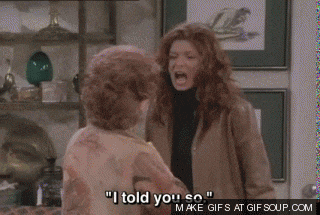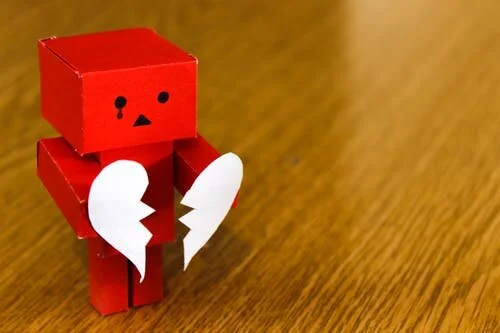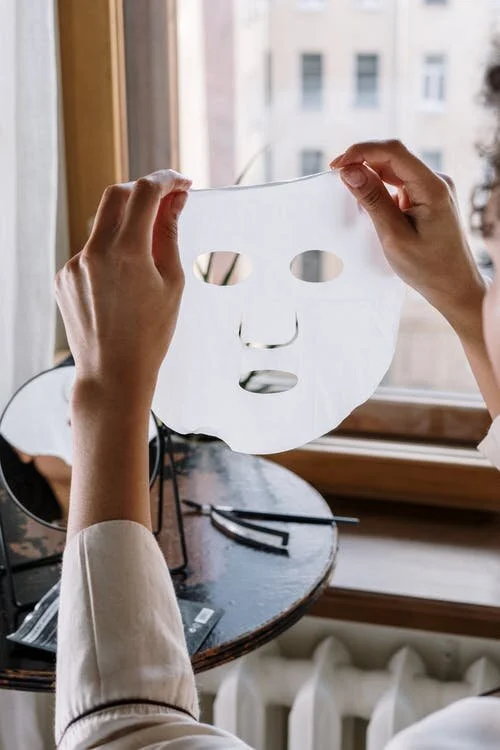Fake Nice
I’m not nice.
That’s not usually something people brag about, but here we are.
Sure, I can be friendly, polite, and kind when I want to be, but I’ve never been in danger of being considered “nice.” I can’t fake it. I can’t pretend. And honestly, I don’t want to.
See, I’m suspicious of niceness. More specifically, I’m suspicious of anyone who centers their whole personality on being “nice.” Why? Because being nice is so often used as a cover for some genuinely gross behavior. “So and so couldn’t have done that awful thing, they’re too NICE!”
The last few weeks we’ve been inundated with all the rude, mean, and entitled behavior that Ellen DeGeneres, the daytime queen of “nice," dancing, and pranks that teeter on the edge of bullying, has allegedly taken part in during the almost 20 years her talk show’s been around. There are multiple articles chronicling the tales of former employees, fans, and celebrity guests who have all made statements regarding Ellen’s lack of niceness. One is even quoted in a Buzzfeed article as saying, “that ‘be kind’ bullshit only happens when the cameras are on. It’s all for show.”
Fun fact about me, I am most definitely an “I told you so” kind of gal, and the news that Ellen’s been faking it for years has not been a surprise to me. Anyone who tries to cash in on the idea that you should be nice or kind to everyone with no boundaries on that is almost always the worst person in the room. You might remember the backlash Ellen faced when she tried to defend her actions of buddying up to George W. Bush at a football game last year. She tried to say that her “be kind” rhetoric extends to everyone not just people who share the same opinion as her. And while that might be a cute idea, it’s also a great excuse for leaving your moral compass at the door. In case you forgot, George W. Bush was a man who started unnecessary, unending, wars and fought against LGBTQ rights.
This opinion piece by Molly Roberts of The Washington Post put my own feelings on the matter so concisely, “DeGeneres cries “kindness” to explain herself because kindness is her brand. It’s also an awfully clever brand to have. It has the heft of virtue without any of the heaviness that comes with actually being virtuous. What is right, according to this particular code, will almost always align with what is convenient.”
Ellen’s not the only one who wears the facade of niceness. Since her reckoning began there have been talks of hiring James Corden, another well known “nice” actor and host, to take her spot in daytime for the long haul. However, there are also plenty of stories circulating James and his alleged affinity for being a total asshole. From ignoring his own wife and crying baby on a flight to fighting for late night writers to be paid less than the union minimum, it seems that James Corden’s cuddly persona isn’t all it’s cracked up to be.
These two are just the tip of the iceberg. There are plenty of other examples of public personas being that of the “nice guy/gal” and behind closed doors being anything but. Bill Cosby is in a whole other league from Ellen DeGeneres and James Corden, his acts are far more evil, but the facts are the same. He used his role as America’s Dad to buy millions of dollars worth of goodwill through donating to all female colleges and paying for tuitions of students in need when in fact he was drugging and sexually assaulting numerous women. And because of that good guy persona, many people didn’t want to believe he was actually a monster even when face to face with facts. Jelani Cobb said it best in his 2017 article for The New Yorker, “The great mystery of evil is not that it persists but, rather, that so many of its practitioners wish to do so while being thought of as saints.”
So what’s the big deal? These people aren’t as nice or good as they claim to be? Who is? Well that’s just it! We’re all multifaceted people with likes, dislikes, opinions, and frustrations. But when a person builds their whole brand, persona, and personality around being nice, they limit themselves from having all of the emotions that could be viewed negatively. What does that mean? When a “nice” person inevitably slips up, has a bad day, or participates in some ugly bullshit, the mask falls and the audience feels duped.
A few years ago, while working the front of house at a local theater, I took time to help an elderly couple figure out their ride home after a matinee performance. They seemed confused and unsure why their ride hadn’t shown up so I offered to call them a cab (this was before UBER became all the rage) and kept them updated on when to expect it. After they were finally on their way, a co-worker I had never had a great relationship with said, “I can’t believe you were so nice!” Why? Cause I’m not nice to you? That doesn’t mean I’m not a reasonable human being. Nice doesn’t always equate to a good person just like surly doesn’t always mean that person is bad.
Listen, I’m not a bad person, for the most part. But I don’t pretend to like someone or something I don’t like. I see no reason to act like I’m best friends with everyone or to hide my opinions about XYZ because I’m worried someone might think negatively of me. I don’t need to be liked. And you know what? You don’t need to be liked! It’s okay to not be nice. Just don’t be an asshole, okay?
Have you ever had someone in your life who acted nice but really wasn’t? Could anyone else see through the bullshit or were you left on your own with everyone else thinking you’re just a dick? Was the truth finally revealed to the masses and if so, did you pull the “I told you so” card? Let me know all about it in the comments below!


